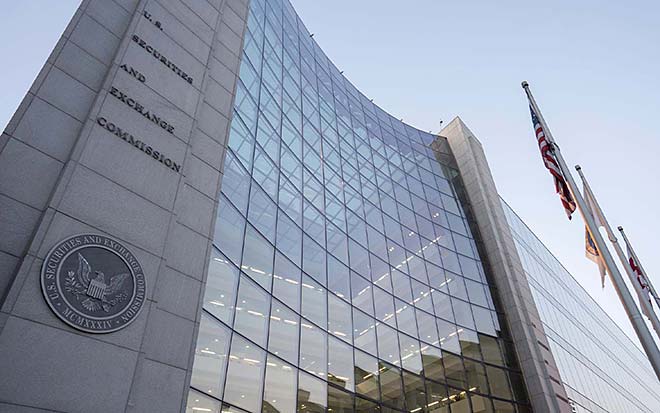
Trade Secrets & Employee Mobility
Protecting your trade secrets and your business
Whether seeking to
- protect trade secrets
- prevent employees from misappropriating confidential information
- draft employee agreements with enforceable restrictive covenants
- enforce your rights against those who breach restrictive covenants
- hire a candidate who signed a non-compete agreement
- protect trade secrets during unrelated litigation
- defend against a competitor’s claim of misappropriation or tortious interference
our team can advise how to protect your proprietary business information, take action against those who take what belongs to you, defend against such charges levied against you, and help you minimize the risk of litigation by the competition.
We help make sure your trade secrets are (and stay) secret
To convince a court that certain business information is a trade secret, you have to treat it as such. We advise on protection strategies and important steps to take both to identify trade secrets and to keep them confidential. Such steps include implementing standardized on-boarding practices, using confidentiality agreements, placing limits on access, and adhering to an employee departure checklist. We also develop and implement strategies to protect trade secrets during litigation involving other matters, such as in products liability cases.
Properly draft agreements containing restrictive covenants
We draft and update non-compete, non-disclosure, and non-solicitation agreements designed to withstand scrutiny and be enforceable, under applicable state law. We also draft agreements for protecting your interests with vendors and other third parties.
When a business partner or employee misappropriates a trade secret or violates a restrictive covenant, our litigators
- Evaluate and advise on the legal issues, applicable remedies, and probable outcomes for the client to assess the degree of potential harm
- File necessary actions under state trade secret, unfair competition, and restrictive covenant laws, as well as under the Defend Trade Secrets Act of 2016, Economic Espionage Act of 1996, the Computer Fraud and Abuse Act, and other relevant statutes
- Advise whether to take immediate legal action, including filing for a temporary restraining order or preliminary injunction
- Advocate in all forms of dispute resolution; mediation, arbitration, and trial
- Negotiate appropriate settlements
Best practices for hiring from the competition
- The last thing a business wants is to be sued because a new employee violated a non-compete agreement or misappropriated a trade secret. The team advises clients on minimizing potential liability through recruiting and hiring practices that unearth existing employment agreements, communicate policies against disclosure of trade secrets, and require appropriate actions of the new employee.
- When the client knows the candidate signed a non-compete, we review the agreement to determine its enforceability, assess the risk of legal action by the competitor, and identify provisions that may be negotiated. If the client decides to hire the candidate, we counsel on the overall hiring strategy: how to make the offer, whether to disclose the move to the competitor, what kind of agreements to obtain, and ways to stop the new employee from divulging any information that will set the client up for a lawsuit. If a competitor does file suit, our litigators are ready to defend in state and federal courts throughout the country.
Why Nelson Mullins?
- Lawyers who understand what is at stake for a company every time an employee accesses—when authorized and unauthorized—proprietary business information
- A team that combines experienced employment counsel and skilled litigators to protect clients’ valuable information assets. And the firm’s IP lawyers stand ready to assist with any advanced technical issues
- Extensive technology-based e-discovery tools and capabilities
- Diverse state jurisdictional experience drafting restrictive covenants and filing actions under various competition-related laws
- Experience bringing and defending actions under the federal Defend Trade Secrets Act, Economic Espionage Act, the Computer Fraud and Abuse Act, as well as their state law counterparts
Why Nelson Mullins?
- Lawyers who understand what is at stake for a company every time an employee accesses—when authorized and unauthorized—proprietary business information
- A team that combines experienced employment counsel and skilled litigators to protect clients’ valuable information assets. And the firm’s IP lawyers stand ready to assist with any advanced technical issues
- Extensive technology-based e-discovery tools and capabilities
- Diverse state jurisdictional experience drafting restrictive covenants and filing actions under various competition-related laws
- Experience bringing and defending actions under the federal Defend Trade Secrets Act, Economic Espionage Act, the Computer Fraud and Abuse Act, as well as their state law counterparts
Why Nelson Mullins?
- Lawyers who understand what is at stake for a company every time an employee accesses—when authorized and unauthorized—proprietary business information
- A team that combines experienced employment counsel and skilled litigators to protect clients’ valuable information assets. And the firm’s IP lawyers stand ready to assist with any advanced technical issues
- Extensive technology-based e-discovery tools and capabilities
- Diverse state jurisdictional experience drafting restrictive covenants and filing actions under various competition-related laws
- Experience bringing and defending actions under the federal Defend Trade Secrets Act, Economic Espionage Act, the Computer Fraud and Abuse Act, as well as their state law counterparts
Why Nelson Mullins?
- Lawyers who understand what is at stake for a company every time an employee accesses—when authorized and unauthorized—proprietary business information
- A team that combines experienced employment counsel and skilled litigators to protect clients’ valuable information assets. And the firm’s IP lawyers stand ready to assist with any advanced technical issues
- Extensive technology-based e-discovery tools and capabilities
- Diverse state jurisdictional experience drafting restrictive covenants and filing actions under various competition-related laws
- Experience bringing and defending actions under the federal Defend Trade Secrets Act, Economic Espionage Act, the Computer Fraud and Abuse Act, as well as their state law counterparts
Experience
Following is a selected sampling of matters and is provided for informational purposes only. Past success does not indicate the likelihood of success in any future matter.
- Represent Plaintiff in Georgia Superior Court alleging trade secret misappropriation, under state and federal law, breach of contract, and related tort actions arising out of former employee’s downloading documents relating to product research, development, testing, technical information, project notes, and customer information. After filing, defendant agreed to a consent injunction.
- Defend scientific researcher from claims of breach of contract and trade secrets misappropriation relating to biological materials in Georgia and Florida. The case also raised significant questions regarding the scope of a pre-2011 restrictive covenant under Georgia law. The case successfully resolved prior to trial.
- Prosecute non-compete and trade secret misappropriation of an international fast food chain in federal court in Missouri. Court granted a temporary restraining order preventing the employee from immediately joining the competitor.
- Defend start-up software consulting shop against claims of trade secret misappropriation, breach of restrictive covenants, and employee raiding. Satisfactorily settled after motion to dismiss briefing.
- Compelled arbitration in an action by a former employer against our client for hiring the former employees.
- Represent plaintiff franchisor in federal court action against a former employee for disclosing proprietary information to an independent franchisee and competitor.
- Counsel NFL agents in connection with forming their own agency in light of restrictive agreements with their prior employer. Successfully avoided suit by counseling the clients to be “good leavers.”
- Represent staffing company to address competitive issues in niche-market staffing to prevent unfair competition.
- Advise and counsel major manufacturing company on its ground-up revision of restrictive contracts for electronic rollout and execution by employees and officers throughout the United States.
- Defend medical device company facing motion for preliminary injunction seeking to bar two of its new hires from working for the company. The Court denied the motion, ruling that the plaintiff had not proven that the new hires were violating their agreements or had taken confidential information.
Why Nelson Mullins?
- Lawyers who understand what is at stake for a company every time an employee accesses—when authorized and unauthorized—proprietary business information
- A team that combines experienced employment counsel and skilled litigators to protect clients’ valuable information assets. And the firm’s IP lawyers stand ready to assist with any advanced technical issues
- Extensive technology-based e-discovery tools and capabilities
- Diverse state jurisdictional experience drafting restrictive covenants and filing actions under various competition-related laws
- Experience bringing and defending actions under the federal Defend Trade Secrets Act, Economic Espionage Act, the Computer Fraud and Abuse Act, as well as their state law counterparts
We help make sure your trade secrets are (and stay) secret
To convince a court that certain business information is a trade secret, you have to treat it as such. We advise on protection strategies and important steps to take both to identify trade secrets and to keep them confidential. Such steps include implementing standardized on-boarding practices, using confidentiality agreements, placing limits on access, and adhering to an employee departure checklist. We also develop and implement strategies to protect trade secrets during litigation involving other matters, such as in products liability cases.
Properly draft agreements containing restrictive covenants
We draft and update non-compete, non-disclosure, and non-solicitation agreements designed to withstand scrutiny and be enforceable, under applicable state law. We also draft agreements for protecting your interests with vendors and other third parties.
When a business partner or employee misappropriates a trade secret or violates a restrictive covenant, our litigators
- Evaluate and advise on the legal issues, applicable remedies, and probable outcomes for the client to assess the degree of potential harm
- File necessary actions under state trade secret, unfair competition, and restrictive covenant laws, as well as under the Defend Trade Secrets Act of 2016, Economic Espionage Act of 1996, the Computer Fraud and Abuse Act, and other relevant statutes
- Advise whether to take immediate legal action, including filing for a temporary restraining order or preliminary injunction
- Advocate in all forms of dispute resolution; mediation, arbitration, and trial
- Negotiate appropriate settlements
Best practices for hiring from the competition
- The last thing a business wants is to be sued because a new employee violated a non-compete agreement or misappropriated a trade secret. The team advises clients on minimizing potential liability through recruiting and hiring practices that unearth existing employment agreements, communicate policies against disclosure of trade secrets, and require appropriate actions of the new employee.
- When the client knows the candidate signed a non-compete, we review the agreement to determine its enforceability, assess the risk of legal action by the competitor, and identify provisions that may be negotiated. If the client decides to hire the candidate, we counsel on the overall hiring strategy: how to make the offer, whether to disclose the move to the competitor, what kind of agreements to obtain, and ways to stop the new employee from divulging any information that will set the client up for a lawsuit. If a competitor does file suit, our litigators are ready to defend in state and federal courts throughout the country.
Following is a selected sampling of matters and is provided for informational purposes only. Past success does not indicate the likelihood of success in any future matter.
- Represent Plaintiff in Georgia Superior Court alleging trade secret misappropriation, under state and federal law, breach of contract, and related tort actions arising out of former employee’s downloading documents relating to product research, development, testing, technical information, project notes, and customer information. After filing, defendant agreed to a consent injunction.
- Defend scientific researcher from claims of breach of contract and trade secrets misappropriation relating to biological materials in Georgia and Florida. The case also raised significant questions regarding the scope of a pre-2011 restrictive covenant under Georgia law. The case successfully resolved prior to trial.
- Prosecute non-compete and trade secret misappropriation of an international fast food chain in federal court in Missouri. Court granted a temporary restraining order preventing the employee from immediately joining the competitor.
- Defend start-up software consulting shop against claims of trade secret misappropriation, breach of restrictive covenants, and employee raiding. Satisfactorily settled after motion to dismiss briefing.
- Compelled arbitration in an action by a former employer against our client for hiring the former employees.
- Represent plaintiff franchisor in federal court action against a former employee for disclosing proprietary information to an independent franchisee and competitor.
- Counsel NFL agents in connection with forming their own agency in light of restrictive agreements with their prior employer. Successfully avoided suit by counseling the clients to be “good leavers.”
- Represent staffing company to address competitive issues in niche-market staffing to prevent unfair competition.
- Advise and counsel major manufacturing company on its ground-up revision of restrictive contracts for electronic rollout and execution by employees and officers throughout the United States.
- Defend medical device company facing motion for preliminary injunction seeking to bar two of its new hires from working for the company. The Court denied the motion, ruling that the plaintiff had not proven that the new hires were violating their agreements or had taken confidential information.
- Lawyers who understand what is at stake for a company every time an employee accesses—when authorized and unauthorized—proprietary business information
- A team that combines experienced employment counsel and skilled litigators to protect clients’ valuable information assets. And the firm’s IP lawyers stand ready to assist with any advanced technical issues
- Extensive technology-based e-discovery tools and capabilities
- Diverse state jurisdictional experience drafting restrictive covenants and filing actions under various competition-related laws
- Experience bringing and defending actions under the federal Defend Trade Secrets Act, Economic Espionage Act, the Computer Fraud and Abuse Act, as well as their state law counterparts
Highlights from Insights




